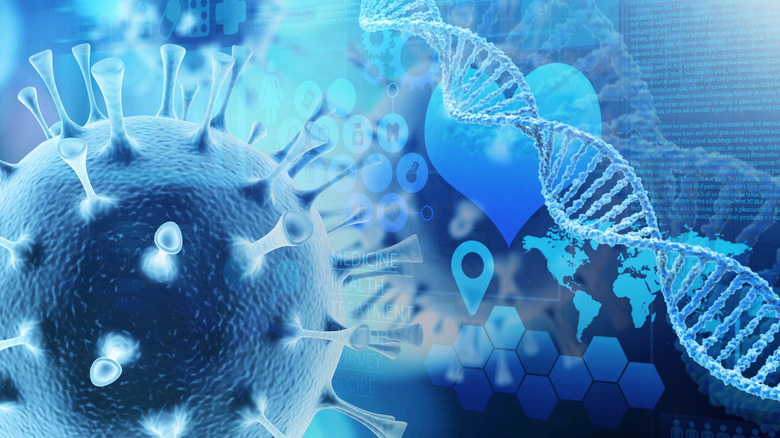Ayurveda – one of the world’s oldest medical systems — is rooted in the idea that any and all imbalances in the body begin in the gut, per a 2024 review in the Journal of Ayurveda and Integrative Medicine. While Ayurvedic practitioners have been healing from this perspective for thousands of years, modern medicine has just recently begun to get on board. A growing body of evidence suggests that microorganisms within the gut may have a profound effect on the way our brains send and receive information, thus affecting our brain activity and resulting behavioral responses.
A 2024 study published in Nature reported that maintaining a healthy gut microbiome is not only essential to homeostasis but that any disturbance to its typical configuration can actually contribute to disease and nervous system disorders — suggesting the existence of the gut-brain axis. Another 2024 study published in the Journal of Psychiatric Research found that when fecal matter from someone suffering from depression was transferred into the colon of an otherwise healthy rat, their behavior and physiological responses mirror those of depression, suggesting that the bacteria in the gut can play a key role in chronic stress and depression.
Adding to this, a new study has pinpointed thirteen groups of microorganisms they believe are associated with the incidence of depressive symptoms.
Microbes in the gut linked to depression

According to a 2024 study published in Nature Communications, 10 of the offending microorganisms belong to one of two families: Ruminococcaceae and Lachnospiraceae. Those belonging to the former family were depleted in people presenting with depression, while those belonging to the latter group were elevated in people with depression.
While the research team notes that they can’t point to any microorganisms that are directly causing or preventing depression, they did confirm that some previously identified microbes are, in fact, linked to depression, and were able to single out some new ones that may play a role. Whether or not the gut microbiome is the cause of depression, the relationship between the two is still significant as it can influence how diagnoses are made, according to the study’s co-author, Najaf Amin (per U.S. News & World Report).
“What we are looking for is to identify the bacteria that associate with major depression,” Amin explained to U.S. News & World Report. “This will help us in identifying a biomarker for depression that can be used as an objective measurement in identifying cases — which is lacking at the moment for depression.”
However, if an imbalance within the microbiome is found to be a direct cause of depression, Amin points out that this could be a game changer in the way we treat depression, indicating that prebiotics and probiotics could become a treatment modality.